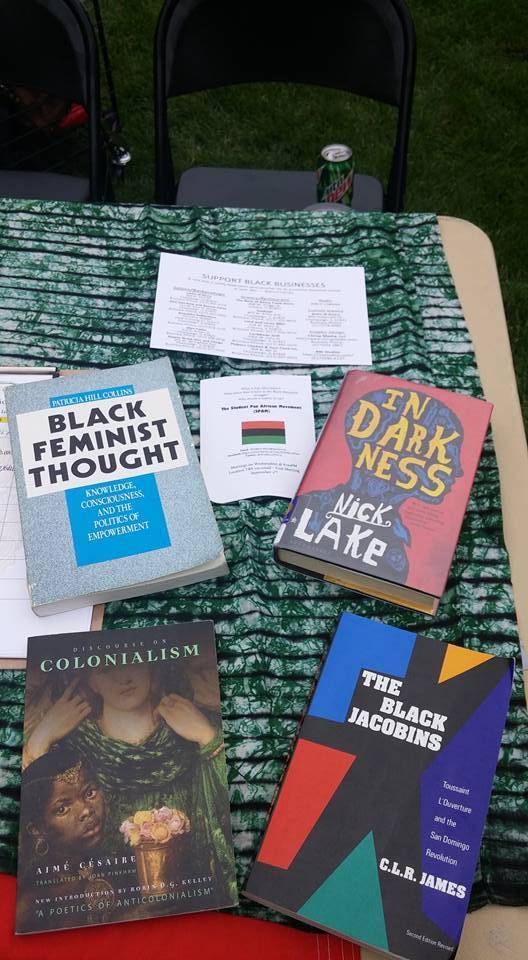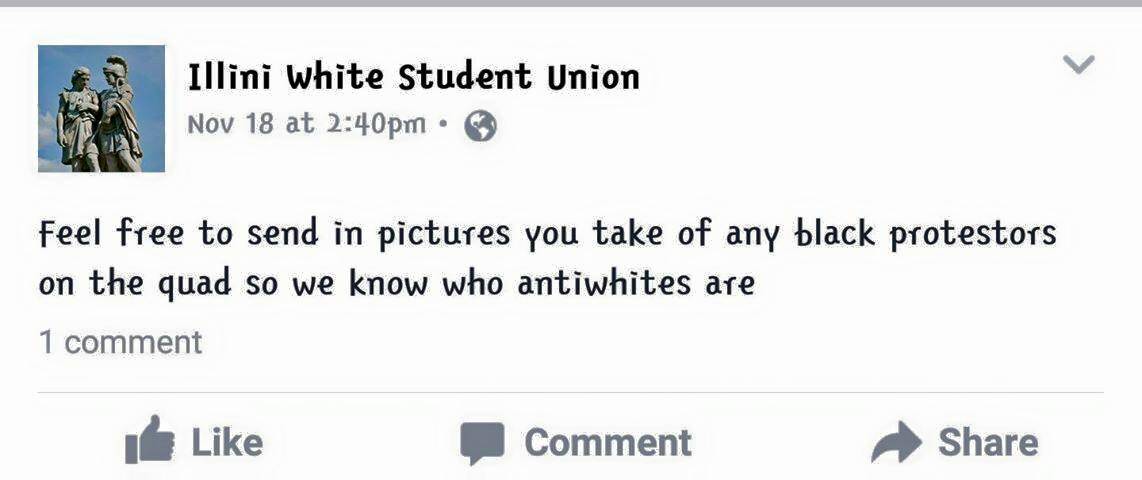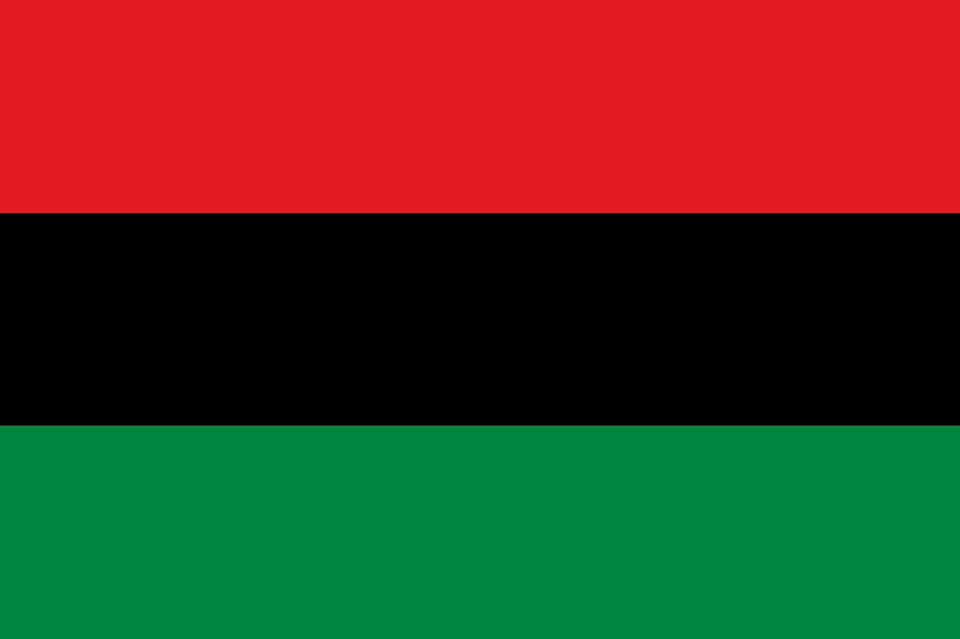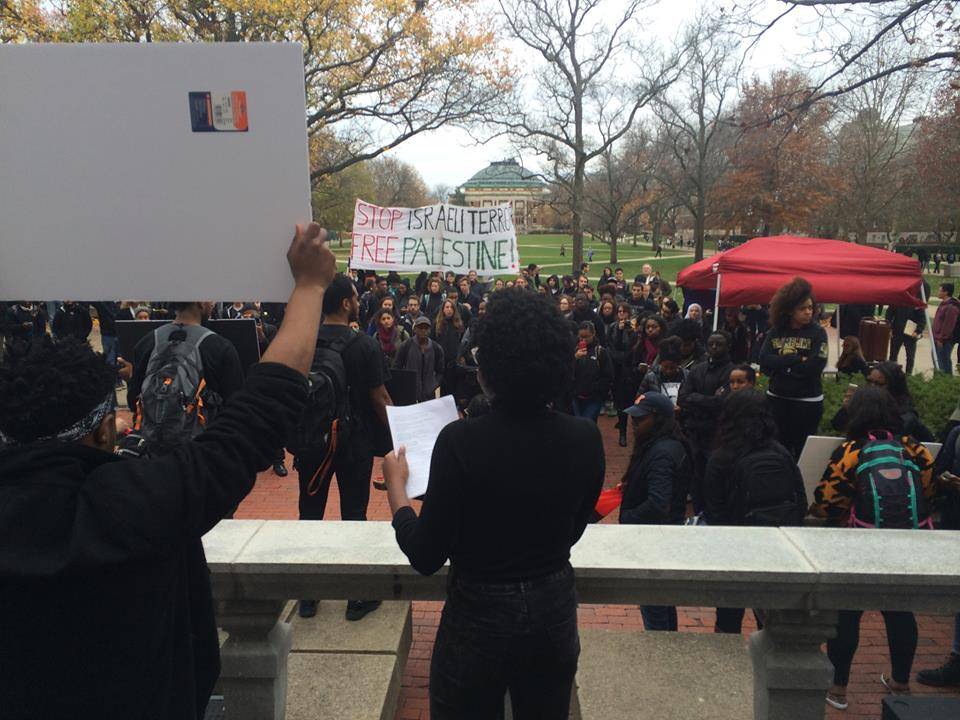When President Obama was first elected in 2008 Americans flocked to the airwaves, headlines, and Internet to declare that a post-racial United States had arrived. Recently, though, events such as Fisher v. University of Texas reaching the Supreme Court (yet again), acts of police brutality directed overwhelmingly at blacks like Laquan McDonald, and incidents of racism on college campuses around the country, reveal a very different picture of race relations and racism in the United States today. For its black citizens, America continues to be anything but free.
With these events, a new wave of student-led activism is being realized. At the University of Missouri, Yale University, and other institutions of higher education around the United States, black students are speaking up and calling out school administrators who fail time and time again to represent them and their interests on campus. At the University of Illinois at Urbana-Champaign, black students are finding a voice through Black Students for Revolution (BSFR).

BSRF is a self-described radical student group whose main goal, a representative from the organization, said is, “to ensure black students’ voices are heard.” The realization of this goal is essential because, “The University of Illinois at Urbana-Champaign’s administration has demonstrated a pattern of perverse neglect for the needs, safety, and overall quality of life for black people on its campus,” BSFR said. Following the recent Black Student Solidarity Rally, the “Illini White Student Union,” group was created on Facebook in which the creator(s) of the group called on fellow white students at the U of I to take pictures and names of the black students at the rally so that, “we know who anti-whites are.”

Though the “Illini White Student Union” group was deleted from Facebook, it was revived here, and provides another example of how many white Americans fail to realize that everything about the social, political, or economic structure of the United States is designed to support them. BSFR is decidedly anti-capitalist, but whether or not you believe in capitalism or not, it is plain to see that since its inception, the United States is a polity designed by, and created for, white men. The incident also represents another way in which the UIUC fails its (increasingly) small population of black students. When, “the university administration’s first response was to warn the white supremacist group that they were violating a trademark copyright,” it once again, “positioned black student safety at the periphery,” it was said in a recent publication by the organization. At the U of I, and countless colleges and universities in the United States, black students find themselves unwelcome and unprotected, their concerns and fears largely ignored.
With a strategy “grounded in political education,” or “the study of the social conditions of a society,” BSFR hopes to organize other black students at the U of I. BSFR leadership believes that by learning about how America’s capitalist and imperialist system colonizes marginalized groups within the U.S. and around the world, black students at the U of I will “understand themselves as colonized subjects.” This awareness, according to BSFR, should then lead to a collective consciousness and resistance to oppression. BSFR went on to explain that, “After we organized such that we maintain substantial social capital, we will have the power to utilize self-determination to create revolutionary change.”
BSFR recognizes that when your dialogue includes the words “radical” and revolution,” you are not likely to be welcomed or accepted. “We already have ample evidence, from social media and our daily experiences as black students, that we will not be embraced or loved by white America,” they said. “What makes us radical is the fact that we recognize asking for freedom has never and will never work,” a statement with which BSFR rejects liberal reformist “solutions” to these and similar problems.

A major focus of BSFR is the education of black students at the UIUC about their oppression; however, the group is not interested in shedding light on these issues to white students or administrators at the university. BSFR is tired of singing a song, telling a story, whispering a tale, to people who will not listen. “The education of the white community, both on this campus and the country-at-large, is ultimately up to the white community,” BSFR said.
With lofty goals, BSFR has their work cut out for them. To learn more about BSFR, who they are, and their goals, you can visit their Facebook page and reach their Mission Statement.
Questions can be directed to bsfruiuc@gmail.com.
Photos courtesy of Black Students for Revolution.








